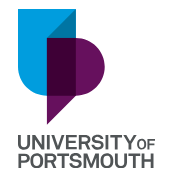About International Relations And Languages BA (hons) in University of Portsmouth
If you're interested in the history and politics of different countries and the way nations interact with each other, this BA (Hons) International Relations and Languages degree course is the perfect choice.
You'll study a foreign language and learn about the countries and cultures where it's spoken. You'll also examine issues such as global migration, terrorism, climate change, the rise and fall of major powers, state collapse, global development and the factors that trigger global protest movements.
You’ll spend a year overseas in a country speaking your first-choice language, have the chance to learn another language and develop transferable skills in areas such as collaboration, analysis, communication, time management and project management.
With this degree, you'll be a strong candidate for careers in areas such as international diplomacy, business, journalism, research and translation.
Careers and opportunities
When you finish the course, our Careers and Employability service can help you find a job that puts your skills and cultural experience to work.
What can you do with an International Relations and Languages degree?
Graduates from this degree have gone on to careers in such as:
- government
- the security services
- international organisations like the UN
- international charities such as Amnesty International or the Red Cross
- policy research
- media and international business consultancy
- political risk analysis
- public relations
- voluntary organisations
- management
- banking and financial services
- marketing and sales
- exporting
- tourism
What jobs can you do with an International Relations and Languages degree?
Job roles they've taken on include:
- politician’s assistant
- public affairs consultant
- bilingual consultant
- multilingual project coordinator
- translator
- social researcher
- information officer
- conference producer
- local government administrator
After you leave the University, you can get help, advice and support for up to 5 years from our Careers and Employability service as you advance in your career.
Academic qualification equivalents
- If you have an average of 75% or above in the 12 Standard (State Board) examinations or 70% in the Central Board, we'll consider you for admission onto an undergraduate course such as a Bachelor's degree. You must have studied relevant subjects and achieved strong grades.
English language requirements (one of the below):
- IELTS: A minimum of IELTS band 6.0, with no component below 5.5.
- TOEFL iBT: For most of our Bachelor's degrees, you need a score of 79 with a minimum of:18 in Reading 17 in Listening 20 in Speaking 17 in Writing Some courses, especially those with a high level of discussion and writing, require higher scores. You can see course-specific details on the individual course pages.
- PTE: 54 points, with a minimum of 51 in each component.
University of Portsmouth Highlights
| Type of Institution |
Public |
| Campus Setting |
Urban |
| Endowment |
9.9 Lakhs GBP |
| Number of Campuses |
2 - Langstone Campus and University Quarter |
| Percentage of International Students |
26% |
| Total number of Professors |
1,126 academic and Research staff |
| Student Satisfaction Rate |
Secured 88% Student Satisfaction |
| Graduate Job Rate |
97.5% |
| International fee |
£11,250 per annum |
| Type of Academic Programs |
UG, PG, Ph.D., research and Pathway Courses |
| Mode of Program |
Full time |
| Average Graduate Salary |
£13,900 - £15,900 a year |
University of Portsmouth Average Tuition Fees And Other Expenses
| Expenses |
Estimated cost in pounds |
| Undergraduate Fee |
£13,900 – £15,900 approx |
| Postgraduate Fee |
£13,900 – £15,900 approx |
| Accommodation |
£5000 approx |
| Cost of living |
£7000 - £10,000 approx |
| Placement year fee |
£2400 |
